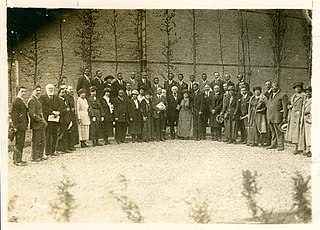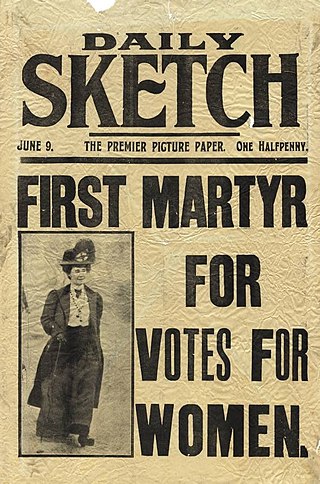Related Research Articles

Sir Grantley Herbert Adams, CMG, QC was a Barbadian politician. He served as the inaugural premier of Barbados from 1953 to 1958 and then became the first and only prime minister of the West Indies Federation from 1958 to 1962. He was a founder of the Barbados Labour Party (BLP), and he was named in 1998 as one of the National Heroes of Barbados.

The Pan-African Congress (PAC) was a series of eight meetings which took place on the back of the Pan-African Conference held in London in 1900. The Pan-African Congress gained a reputation as a peacemaker for decolonization in Africa and in the West Indies. It made a significant advance for the Pan-African cause. One of the group's major demands was to end colonial rule and racial discrimination. It stood against imperialism and it demanded human rights and equality of economic opportunity. The manifesto given by the Pan-African Congress included the political and economic demands of the Congress for a new world context of international cooperation and the need to address the issues facing Africa as a result of European colonization of most of the continent.

The World Peace Council (WPC) is an international organization with the stated goals of advocating for universal disarmament, sovereignty and independence and peaceful co-existence, and campaigns against imperialism, weapons of mass destruction and all forms of discrimination. Founded from an initiative of the Information Bureau of the Communist and Workers' Parties, WPC emerged from the bureau's worldview that divided humanity into Soviet-led "peace-loving" progressive forces and US-led "warmongering" capitalist countries. Throughout the Cold War, WPC operated as a front organization as it was controlled and largely funded by the Soviet Union, and refrained from criticizing or even defended the Soviet Union's involvement in numerous conflicts. These factors led to the decline of its influence over the peace movement in non-Communist countries. Its first president was the French physicist and activist Frédéric Joliot-Curie. It was based in Helsinki, Finland from 1968 to 1999, and since in Athens, Greece.

The Daily Sketch was a British national tabloid newspaper, founded in Manchester in 1909 by Sir Edward Hulton, 1st Baronet.
The League of Coloured Peoples (LCP) was a British civil-rights organization that was founded in 1931 in London by Jamaican-born physician and campaigner Harold Moody with the goal of racial equality around the world, a primary focus being on black rights in Britain. In 1933, the organization began publication of the civil-rights journal, The Keys. The LCP was a powerful civil-rights force until its dissolution in 1951.

Greenham Common Women's Peace Camp was a series of protest camps established to protest against nuclear weapons being placed at RAF Greenham Common in Berkshire, England. The camp began on 5 September 1981 after a Welsh group, Women for Life on Earth, arrived at Greenham to protest against the decision of the British government to allow cruise missiles to be stored there. After realising that the march alone was not going to get them the attention that they needed to have the missiles removed, women began to stay at Greenham to continue their protest. The first blockade of the base occurred in March 1982 with 250 women protesting, during which 34 arrests occurred.

Claudia Vera Jones was a Trinidad and Tobago-born journalist and activist. As a child, she migrated with her family to the United States, where she became a Communist political activist, feminist and Black nationalist, adopting the name Jones as "self-protective disinformation". Due to the political persecution of Communists in the US, she was deported in 1955 and subsequently lived in the United Kingdom. Upon arriving in the UK, she immediately joined the Communist Party of Great Britain and would remain a member for the rest of her life. She then founded Britain's first major Black newspaper, the West Indian Gazette, in 1958, and played a central role in founding the Notting Hill Carnival, the second-largest annual carnival in the world.
Liberation is a political civil rights advocacy group founded in the United Kingdom in 1954. It had the support of many MPs, including Harold Wilson, Barbara Castle and Tony Benn, and celebrities such as Benjamin Britten.

The International Congress of Women was created so that groups of existing women's suffrage movements could come together with other women's groups around the world. It served as a way for women organizations across the nation to establish formal means of communication and to provide more opportunities for women to ask the big questions relating to feminism at the time. The congress has been utilized by a number of feminist and pacifist events since 1878. A few groups that participated in the early conferences were The International Council of Women, The International Alliance of Women and The Women's International League for Peace and Freedom.
Richard Hart was a Jamaican historian, solicitor and politician. He was a founding member of the People's National Party (PNP) and one of the pioneers of Marxism in Jamaica. He played an important role in Jamaican politics in the years leading up to Independence in 1962. He subsequently was based in Guyana for two years, before relocating to London in 1965, working as a solicitor and co-founding the campaigning organisation Caribbean Labour Solidarity in 1974. He went on to serve as attorney-general in Grenada under the People's Revolutionary Government in 1983. He spent the latter years of his life in the UK, where he died in Bristol.

The International Workingmen's Association (IWA), often called the First International (1864–1876), was an international organisation which aimed at uniting a variety of different left-wing socialist, communist and anarchist groups and trade unions that were based on the working class and class struggle. It was founded in 1864 in a workmen's meeting held in St. Martin's Hall, London. Its first congress was held in 1866 in Geneva.
The Eighth Conference of the International Woman Suffrage Alliance occurred June 6–12, 1920, in Geneva, Switzerland.
Betty Tebbs was an English activist for women's rights and a peace campaigner. She was described by the People's History Museum in Manchester as "a radical hero who worked tirelessly and with great humility to campaign for equal rights, workers' rights and peace her whole life".

Charlotte Augusta Leopoldine Marsh, known as Charlie Marsh, was a militant British suffragette.
World Conference on Women, 1975 was held between 19 June and 2 July 1975 in Mexico City, Mexico. It was the first international conference held by the United Nations to focus solely on women's issues and marked a turning point in policy directives. After this meeting, women were viewed as part of the process to develop and implement policy, rather than recipients of assistance. The conference was one of the events established for International Women's Year and led to the creation of both the United Nations Decade for Women and follow-up conferences to evaluate the progress that had been made in eliminating discrimination against women and their equality. Two documents were adopted from the conference proceedings, the World Plan of Action which had specific targets for nations to implement for women's improvement and the Declaration of Mexico on the Equality of Women and Their Contribution to Development and Peace, which discussed how nations foreign policy actions impacted women. It also led to the establishment of the International Research and Training Institute for the Advancement of Women to track improvements and continuing issues and the United Nations Development Fund for Women to provide funding for developmental programs. The conference marked the first time that the parallel Tribune meeting was successful in submitting input to the official meeting and became a catalyst for women's groups to form throughout the world.

The Inter-Allied Women's Conference opened in Paris on 10 February 1919. It was convened parallel to the Paris Peace Conference to introduce women's issues to the peace process after the First World War. Leaders in the international women's suffrage movement had been denied the opportunity to participate in the official proceedings several times before being allowed to make a presentation before the Commission on International Labour Legislation. On 10 April, women were finally allowed to present a resolution to the League of Nations Commission. It covered the trafficking and sale of women and children, their political and suffrage status, and the transformation of education to include the human rights of all persons in each nation.
The Sudanese Women's Union is a Sudanese women's rights organisation that is one of the biggest post-independence women's rights organisations in Africa.

Trevor Carter was a British communist party leader, educator, black civil rights activist, and co-founder of the Caribbean Teachers Association. He served as the head of equal opportunites for the Inner London Education Authority. He co-authored the 1986 book Shattering Illusions: West Indians in British Politics.

William Arthur Watkin Strachan was a British communist, civil rights activist, and pilot. He is most noted for his achievements as a bomber pilot with the Royal Air Force (RAF) during the Second World War, and for his reputation as a highly influential figure within Britain's black communities.
Cleston Taylor (1926–2010) was a communist and Black civil rights activist, political prisoner, and trade unionist, who was most notable for his activities in Jamaica and the United Kingdom. Taylor was also a founding member of the British organisation Caribbean Labour Solidarity, and a member of the Communist Party of Great Britain. He held close personal connections with many leading Black British and Caribbean civil rights leaders such as Billy Strachan, Trevor Carter, Richard Hart, and Claudia Jones.
References
- 1 2 3 4 5 6 7 8 Tebbs, Betty. A Short History of the National Assembly of Women. Manchester, UK: National Assembly of Women, 1993.
- ↑ The Guardian. 8 March 1952. p. 8.
{{cite news}}: Missing or empty|title=(help) - 1 2 “Britain: Greenham Red-Baiting.” Off Our Backs, vol. 17, no. 10, 1987, pp. 10–10. JSTOR, JSTOR, www.jstor.org/stable/25795955.
- ↑ Horsley, David (2019). Billy Strachan 1921–1988 RAF Officer, Communist, Civil Rights Pioneer, Legal Administrator, Internationalist and Above All Caribbean Man. London: Caribbean Labour Solidarity. p. 21. ISSN 2055-7035 . Retrieved 8 May 2023.